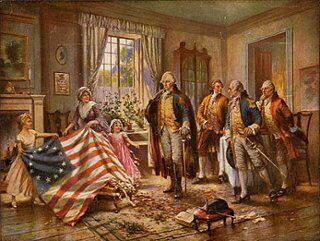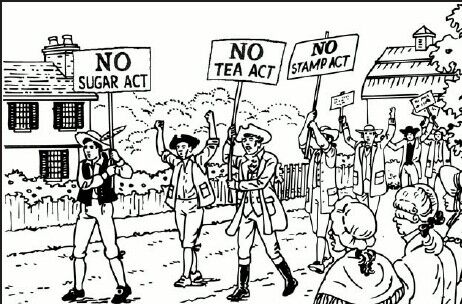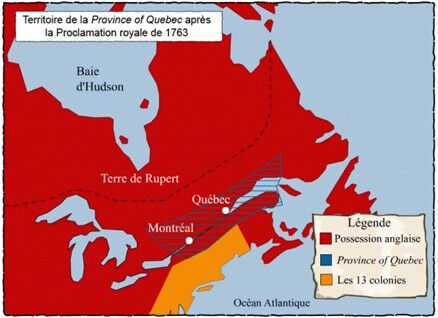
Note : Image in English coming soon
When it comes to situating the American Revolution in time, the link between the ideas of the Enlightenment thinkers or Enlightenment philosophers and the American Revolution becomes obvious. The ideas of freedom, equality and self-determination underpinned the values of the revolution. These ideas, and impressive economic prosperity, prompted the British colonists in the Thirteen Colonies to declare their independence. This Revolution lasted 14 years, from the start of armed confrontations between American colonists and British soldiers in 1775 until the adoption of the Bill of Rights in 1789.
When the Seven Years' War between Great Britain and France ended in 1763, Great Britain owned most of North America. The coast was divided into thirteen colonies, each with its own particular characteristics. The colonies to the north were occupied mainly by merchants, while the colonies to the south were inhabited by wealthy landowners.

Note : Image in English coming soon
The Thirteen Colonies were doing well, their population was large and growing, and despite British mercantilism, which imposed severe economic restrictions, the economy was flourishing. All the elements were in place to give rise to a feeling of autonomy and self-determination.
Several factors explain the uprising of the British population in North America. Firstly, the American colonists rebelled for economic reasons. Following the costly Seven Years' War, Great Britain was trying to replenish its almost empty coffers. To achieve this, it decided to impose new taxes on the booming British colonies, without allowing them to expand their territory.

Representation of the American revolution
A series of new taxes would be imposed on the American colonists. They considered themselves overtaxed, given the economic restrictions already imposed by Great Britain.
- The Sugar Act: in 1764, this law imposed a tax on sugar from the French and Dutch West Indies.
- The Stamp Act: in 1765, this law obliged merchants to put a stamp on their goods, and therefore to buy a stamp.
- The Townshend Acts: in 1767, these taxes imposed an additional tariff on various products such as glass, tea and paper.
- The Tea Act: in 1773, this act obliged colonists in the Thirteen Colonies to buy tea from Great Britain at a high price.

Representation of an American colonist reading the Tea Act
All these taxes created a feeling of frustration among the American colonists. They were imposed on the British colonies in North America without their having a say, as they had no representative in the British parliament. To protest against these taxes, the colonists used the slogan No taxation without representation. The colonists began their revolt by boycotting British products and publishing pamphlets criticising the British government.
A boycott is the act of refusing to buy or consume a product or service from a company or country in order to express dissatisfaction with a particular situation.

A revolt against taxes imposed by Great Britain
